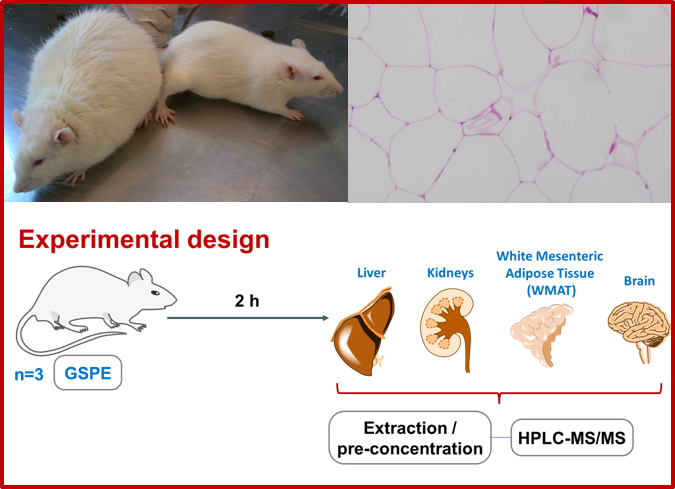Research lines
The nutrigenomics group has several lines of research that are supported by grants from national and international public and private entities. The group always has at least one competitive national or international project.
The main lines of research we are currently following are:
-
Search for bioactive dietary compounds with beneficial effects against pathologies related to the metabolic syndrome, obesity, diabetes mellitus and hypertension.
-
Development of a functional multi-ingredient mix capable of simultaneously treating different disorders.
-
Generation and purification of bioactive peptides from different protein sources such as food products.
-
Assessment of the impact of biological rhythms on the effectiveness of bioactive compounds.
The Nutrigenomics research group has extensive experience investigating the biological effects of proanthocyanidins. Since 1995 we have studied its bioavailability and its effects on lipid and carbohydrate homeostasis, its antioxidant and anti-inflammatory properties as well as its effects on blood pressure. We have always focused our studies looking for the prevention of the risk of genesis of pathologies included in the metabolic syndrome in the situation of obesity.
As a result of our research we have come to the conclusion that proanthocyanidins act by interacting with transcription factors and with microRNAs affecting cell signaling pathways and the regulation of metabolism. Its continued consumption, at relatively moderate doses, decreases intake, decreases lipogenesis, increases beta-oxidation mainly in skeletal muscle, decreases inflammation and improves insulin resistance and hypertriglyceridemia, especially in a postprandial situation. At higher doses they correct arterial hypertension. In recent studies we have been able to verify that PACs accumulate in white adipose tissue, even in non-biotransformed chemical forms and cross the blood-brain barrier.

A la figura es mostra l'esquema de treball seguit en un experiment in vivo agut. Després de l'adminsitració d'una determinada quantitat de l'extracte d'interés (en aquest cas GSPE) s'extrauen els metabòlits presents en diferents òrgans i posteriorment s'analitzen de forma sel·lectiva per HPLC-MS/MS per tal de poder avaluar el procés de metabolització de l'extracte.
